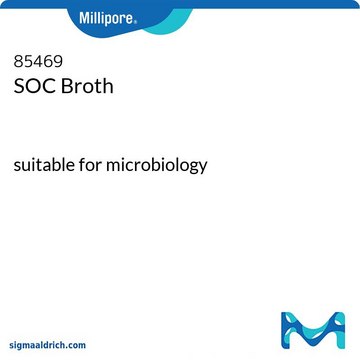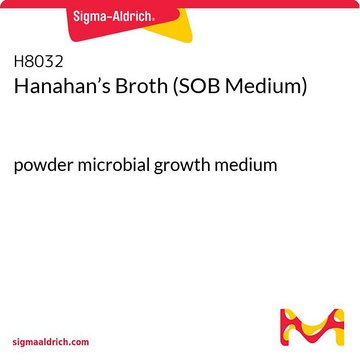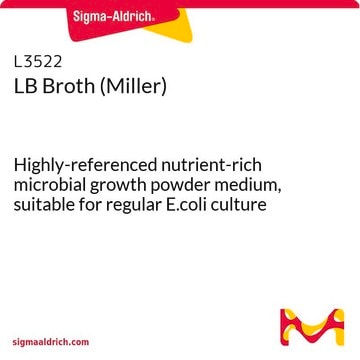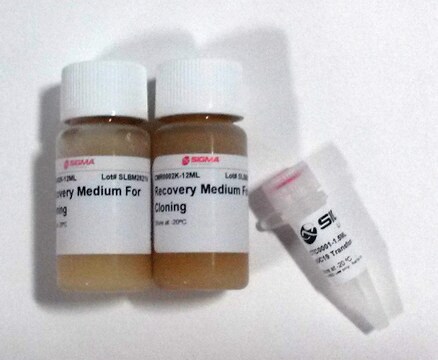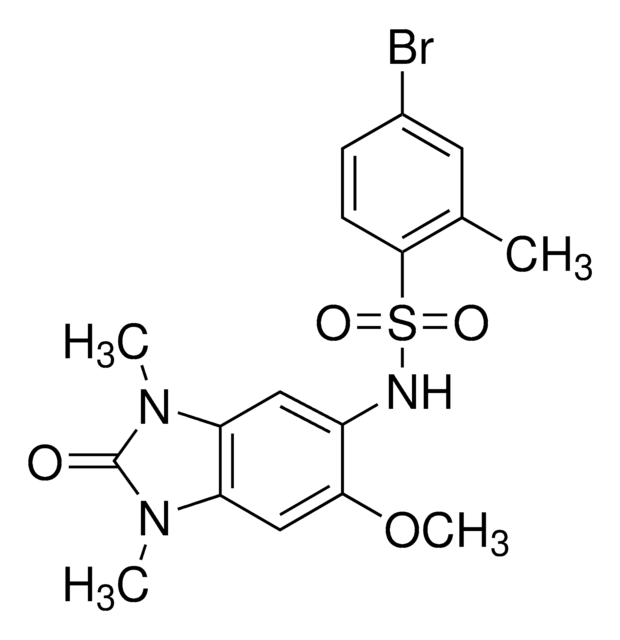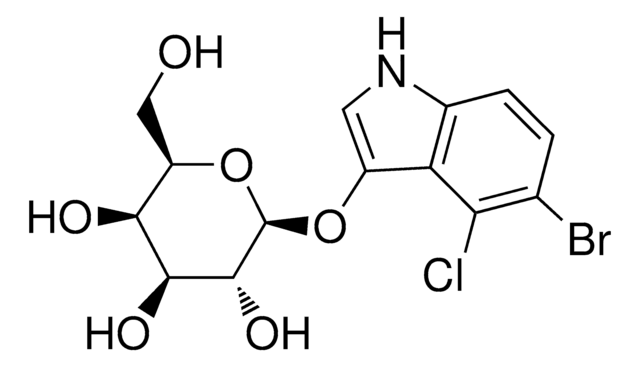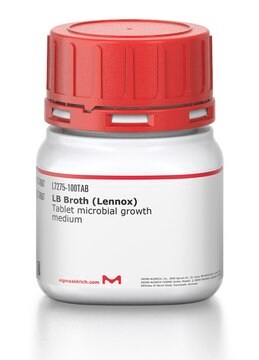S1797
SOC Medium
For use in transformation
Sinónimos:
Super Optimal broth
About This Item
Productos recomendados
grado
for molecular biology
Nivel de calidad
esterilidad
0.2 μm filtered
formulario
liquid
composición
Dextrose, 3.603 g/L
KCl, 0.186 g/L
MgSO4, 4.8 g/L
Tryptone, 20 g/L
Yeast extract, 5 g/L
técnicas
microbiological culture: suitable
aplicaciones
agriculture
temp. de almacenamiento
2-8°C
idoneidad
nonselective for Escherichia coli
nonselective for coliforms
Descripción general
Aplicación
Características y beneficios
- Filter-sterilized, ready-to-use format
- Convenient package sizes
- Standard formulation
Producto relacionado
Código de clase de almacenamiento
12 - Non Combustible Liquids
Clase de riesgo para el agua (WGK)
WGK 1
Punto de inflamabilidad (°F)
Not applicable
Punto de inflamabilidad (°C)
Not applicable
Certificados de análisis (COA)
Busque Certificados de análisis (COA) introduciendo el número de lote del producto. Los números de lote se encuentran en la etiqueta del producto después de las palabras «Lot» o «Batch»
¿Ya tiene este producto?
Encuentre la documentación para los productos que ha comprado recientemente en la Biblioteca de documentos.
Los clientes también vieron
Artículos
General protocols for growth of competent cells and their transformation (uptake of DNA).
Protocolos
Technical Article on competent cells. Transformation is a process by which some bacteria take up foreign genetic material (naked DNA) from the environment.
General protocols for growth of competent cells in microbial medium.
Nuestro equipo de científicos tiene experiencia en todas las áreas de investigación: Ciencias de la vida, Ciencia de los materiales, Síntesis química, Cromatografía, Analítica y muchas otras.
Póngase en contacto con el Servicio técnico